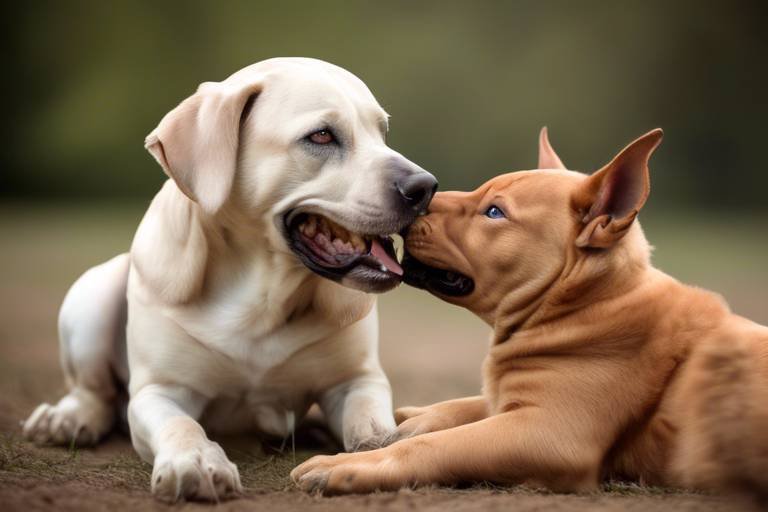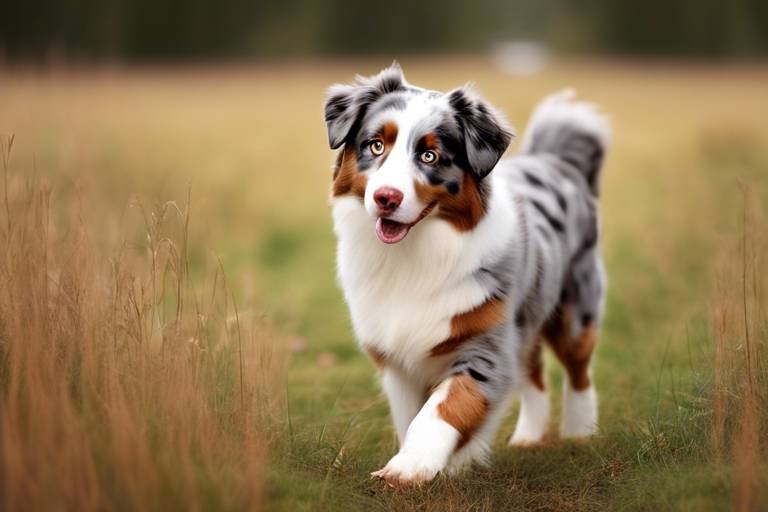Understanding the Friendly Nature of the Schipperke
The Schipperke, often referred to as the "little captain," is a breed that has captured the hearts of many dog lovers around the globe. With their fluffy black coats and lively personalities, these dogs are not just adorable; they are also known for their friendly nature. But what exactly makes the Schipperke such a delightful companion? In this article, we will explore their temperament, social behaviors, and the unique characteristics that contribute to their reputation as friendly family pets. From their rich history to their playful interactions with children and other pets, we'll dive deep into what makes the Schipperke a beloved choice for families.
Originating from Belgium, the Schipperke was initially bred as a working dog, particularly for guarding boats. This history contributes significantly to their protective yet amiable nature. Imagine a tiny guardian watching over you, ready to alert you to anything unusual while also being your best friend! Their friendly demeanor isn't just a coincidence; it's a blend of their historical roles and their natural instincts. Schipperkes are known for their intelligence and curiosity, which often leads them to explore their surroundings while keeping a watchful eye on their loved ones.
One of the most appealing aspects of Schipperkes is their ability to form strong bonds with their owners. They are incredibly loyal and affectionate, often following their humans around the house and seeking out attention. This breed thrives on companionship, making them ideal for families who can provide the love and interaction they crave. Imagine coming home after a long day and being greeted by a little ball of energy, wagging its tail and eager to play—this is the joy that a Schipperke brings to your life.
However, it's essential to recognize that their friendly nature doesn't just happen overnight. Like any breed, Schipperkes require proper socialization to thrive. Early exposure to different environments, people, and other animals plays a crucial role in developing their friendly demeanor. Without this exposure, they might become anxious or overly protective. Therefore, introducing your Schipperke to various situations while they are still a puppy is vital for their overall well-being and friendliness.
In terms of training, patience and consistency are key when working with a Schipperke. These dogs respond exceptionally well to positive reinforcement techniques, which not only help them learn but also strengthen the bond between dog and owner. Think of training as a dance; when both partners are in sync, the performance is delightful! By encouraging good behavior with treats and praise, you foster a friendly and cooperative relationship, ensuring that your Schipperke remains a happy and well-adjusted member of the family.
As we explore the interactions of Schipperkes with children, it’s important to note that they are generally good playmates. Their playful and protective nature makes them excellent companions for kids. However, supervision is essential to ensure safe interactions. Just like any small dog, they can sometimes be overwhelmed by the enthusiastic energy of children, so monitoring their playtime can help prevent any mishaps. This way, both the children and the Schipperke can enjoy their time together without any worries.
When it comes to living with other pets, Schipperkes can coexist happily, provided they are introduced properly. Their friendly nature often leads to playful interactions, making them a great addition to multi-pet households. The key is to ensure early socialization; the more experiences they have with other animals, the more comfortable they will be. Picture a lively household where your Schipperke is happily playing with a cat or another dog, showcasing their friendly demeanor and adaptability.
Regular exercise is another vital aspect of keeping a Schipperke happy and healthy. These energetic dogs require daily walks and playtime to satisfy their physical needs. Think of exercise as the fuel that keeps their friendly engine running! Engaging in outdoor activities not only promotes physical health but also enhances their overall demeanor, making them more sociable and eager to interact with others.
Lastly, understanding the common health considerations for Schipperkes can help owners provide better care. A healthy dog is more likely to exhibit a friendly temperament, so regular vet check-ups are essential. By staying informed about potential health issues, you can ensure that your Schipperke remains a vibrant and loving companion for years to come.
- Are Schipperkes good with children? Yes, Schipperkes are generally very good with children and can make excellent playmates.
- Do Schipperkes require a lot of exercise? Yes, they are energetic dogs and require regular exercise to stay happy and healthy.
- How can I socialize my Schipperke? Early exposure to various environments, people, and other pets is crucial for proper socialization.
- What is the best training method for Schipperkes? Positive reinforcement techniques work best, as they respond well to encouragement.

History of the Schipperke
The Schipperke breed boasts a fascinating and rich history that dates back to the early 16th century in Belgium. Originally, these dogs were bred as working dogs for the bustling canals and waterways of Brussels. Their primary role was to guard boats and goods, which is where their name derives from; "Schipperke" is a diminutive of "schipper," meaning "boatman" in Dutch. Imagine these little black furballs, energetically patrolling the decks, ever-vigilant and ready to protect their human companions and cargo.
As time went on, Schipperkes became popular among the working class, not just for their guarding abilities but also for their playful and friendly nature. Their small size made them ideal companions on boats, where space was limited, yet they still possessed a robust and energetic personality that captivated many. In fact, it wasn’t long before they transitioned from working dogs to beloved family pets, a role they excel in to this day.
Throughout the years, Schipperkes have been recognized for their intelligence and adaptability. They were often used in various capacities, including as ratters on ships and in homes, helping to keep the rodent population at bay. Their keen instincts and alertness made them exceptional watchdogs, always ready to bark at any sign of trouble. This blend of traits has resulted in a breed that is not only friendly but also protective, striking a balance that many dog owners appreciate.
In the 20th century, the breed gained formal recognition, and their popularity surged beyond Belgium. Today, Schipperkes are cherished around the world, known for their charming personalities and loyal companionship. They have even made their mark in dog shows and competitions, showcasing their agility and intelligence. Their history is a testament to their versatility and the strong bonds they form with humans, making them not just pets, but true family members.
To summarize, the Schipperke's journey from a hardworking canine on the canals of Belgium to a cherished family companion is a remarkable tale of adaptability and loyalty. Their friendly yet protective nature is deeply rooted in their history, making them excellent companions for families and individuals alike. Understanding this background not only enriches our appreciation for the breed but also helps us nurture their friendly demeanor in our homes.
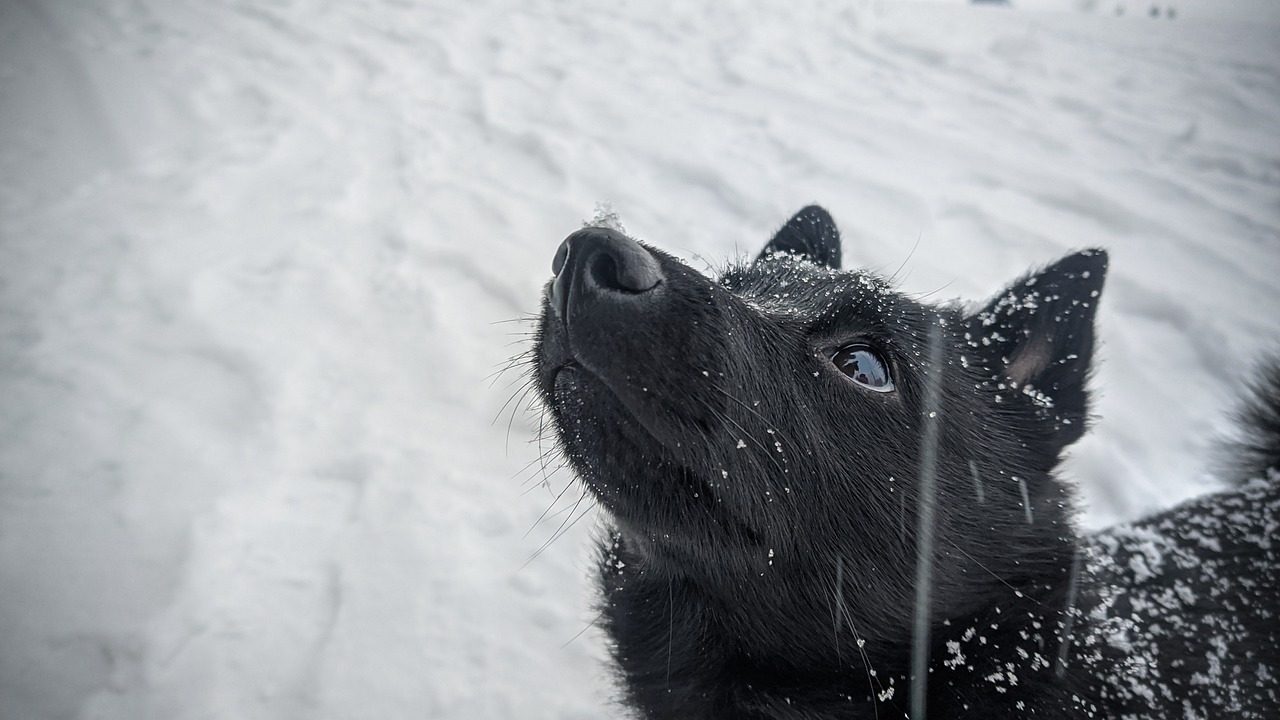
Temperament Traits
The Schipperke breed is a delightful bundle of energy wrapped in a fluffy coat. Known for their lively and curious personalities, Schipperkes are often described as the clowns of the dog world. Imagine a little black shadow darting around your home, always eager to explore and engage with everyone around them. Their friendly disposition makes them not just great family pets but also fantastic companions for individuals and couples alike. These dogs are incredibly loyal, often forming strong bonds with their owners, which is evident in the way they follow you from room to room, always wanting to be part of the action.
What truly sets Schipperkes apart is their affectionate nature. They thrive on human interaction and are known to show their love through playful antics and cuddly moments. It's as if they have an innate understanding of when you need a little extra love, and they are always ready to provide it! Their playful spirit can turn even the dullest day into a joyous adventure, making them a perfect fit for families looking for a lively addition to their household.
However, it's important to remember that while they are friendly, Schipperkes also possess a protective streak. This breed has a history as a Belgian working dog, originally bred for guarding boats and homes. This background contributes to their alertness and willingness to protect their family. They may bark at strangers or unfamiliar sounds, which is their way of saying, "Hey, I’m watching out for you!" This combination of friendliness and protectiveness makes them excellent watchdogs, ensuring that your home remains safe while still being a warm and welcoming environment.
In addition to their loyalty and protectiveness, Schipperkes are highly social animals. They thrive in environments where they can interact with people and other pets. Early exposure to various situations and social settings is essential to nurture their friendly demeanor. When properly socialized, Schipperkes can be the life of the party, charming guests with their playful nature and quick wit. Their ability to adapt to different social environments is a testament to their intelligence and eagerness to please.
To sum it up, the temperament traits of a Schipperke can be encapsulated in a few key points:
- Lively and Curious: Always eager to explore their surroundings.
- Affectionate and Loyal: Forms strong bonds with their families.
- Protective: Acts as a vigilant watchdog.
- Social: Enjoys interaction with people and other pets.
With these traits in mind, it's easy to see why Schipperkes are beloved companions. They bring joy, laughter, and a sense of security to any household, making every day an adventure filled with love and loyalty.
Q: Are Schipperkes good with children?
A: Yes, Schipperkes are generally good with children. Their playful nature makes them excellent playmates, but supervision is essential to ensure safe interactions.
Q: How much exercise do Schipperkes need?
A: Schipperkes require regular exercise, including daily walks and playtime, to maintain their health and happiness.
Q: Can Schipperkes live with other pets?
A: Yes, when properly introduced, Schipperkes can coexist harmoniously with other pets, especially if they are socialized early.
Q: What training methods work best for Schipperkes?
A: Positive reinforcement methods are the most effective for training Schipperkes, as they respond well to encouragement and rewards.

Socialization Needs
When it comes to raising a Schipperke, understanding their is absolutely crucial. These little bundles of energy thrive on interaction, not just with their human family members but also with other animals and the world around them. Imagine a young child who has never been outside; they might be fearful or anxious about new experiences. Similarly, a Schipperke that hasn't been properly socialized can develop anxiety or fear in unfamiliar situations. Therefore, introducing them to various environments, sounds, and people from an early age can set the stage for a well-adjusted adult dog.
Socialization should begin as soon as you bring your Schipperke home. This can involve simple activities such as:
- Taking them on walks in different neighborhoods
- Inviting friends over to meet your pup
- Exposing them to different types of animals, like cats or other dogs
- Introducing them to various sounds, like traffic, children playing, or household appliances
It’s important to remember that socialization is not just a one-time event; it’s an ongoing process. Just as we continue to learn and adapt throughout our lives, Schipperkes benefit from regular exposure to new experiences. This ongoing interaction helps them develop a friendly demeanor and reduces the likelihood of behavioral issues later on. Think of socialization as a buffet of experiences; the more diverse the menu, the more well-rounded your Schipperke will be!
To effectively socialize your Schipperke, consider enrolling them in puppy kindergarten classes. These classes not only provide structured learning but also allow your dog to interact with other dogs in a controlled environment. This is akin to sending a child to school where they learn to play and share with their peers. Moreover, positive experiences during these formative weeks will lay the groundwork for a confident and friendly adult dog.
In addition to formal classes, regular playdates with other dogs can greatly enhance your Schipperke's social skills. Just like humans, dogs learn a lot through play. They pick up cues from their peers, learn boundaries, and develop their social etiquette. A well-socialized Schipperke will be less likely to exhibit fear-based behaviors, such as barking or aggression, when encountering new people or situations.
In summary, socialization is a vital aspect of raising a happy and friendly Schipperke. By providing a variety of experiences and interactions, you are not only enriching their lives but also ensuring they become well-adjusted companions. After all, a well-socialized Schipperke is not just a pet; they are a cherished member of the family!
Q: At what age should I start socializing my Schipperke?
A: It's best to start socializing your Schipperke as early as possible, ideally during the critical socialization period between 3 to 14 weeks of age.
Q: How can I tell if my Schipperke is properly socialized?
A: A well-socialized Schipperke will be comfortable around new people and environments, display curiosity rather than fear, and have good interactions with other dogs.
Q: What if my Schipperke shows fear or aggression during socialization?
A: If your Schipperke exhibits fear or aggression, it's crucial to go at their pace. Consider seeking help from a professional dog trainer who specializes in behavior modification.
Q: Can I socialize my adult Schipperke?
A: Yes! While it's easier to socialize puppies, adult dogs can still learn and adapt. Gradual exposure to new experiences can help them become more comfortable.
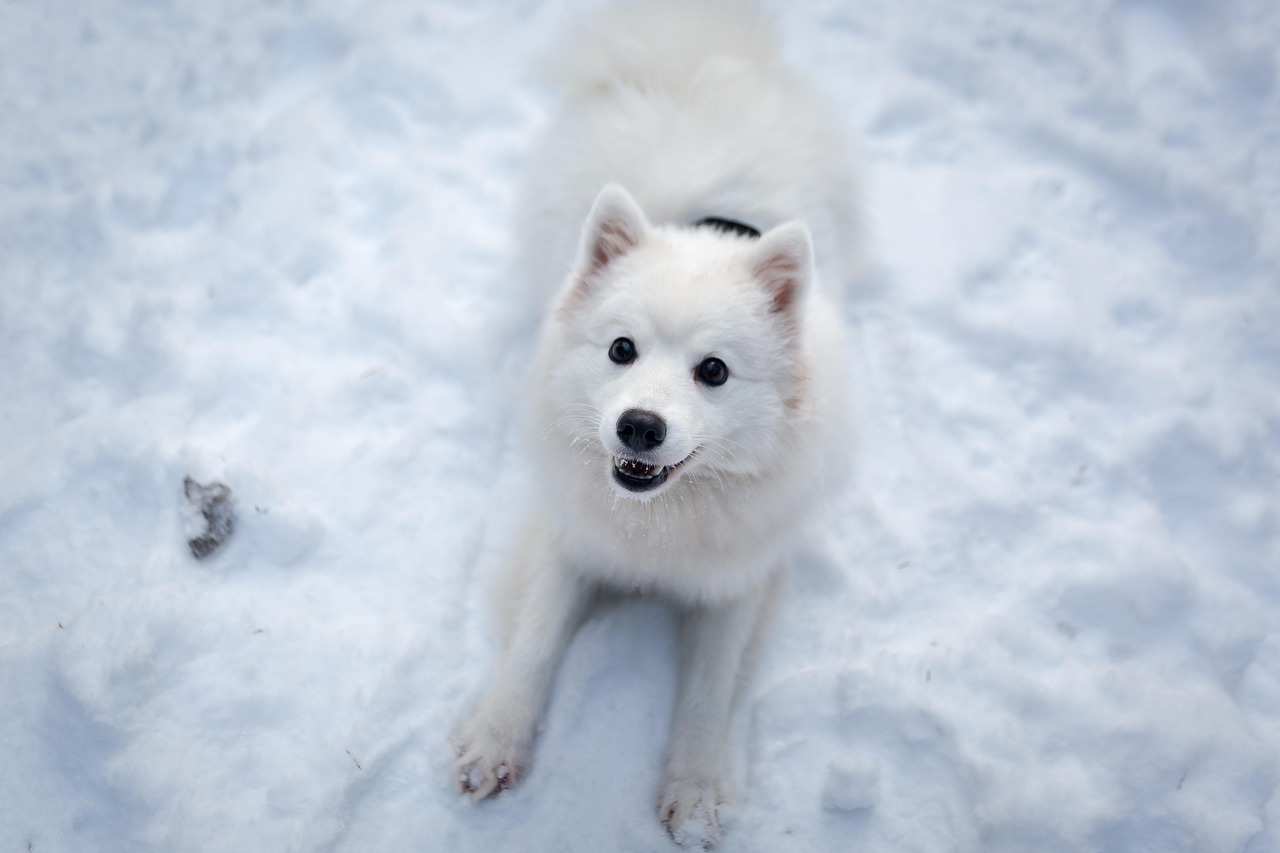
Training Techniques
Training a Schipperke can be a delightful experience, but it’s essential to approach it with the right mindset and techniques. These little bundles of energy are intelligent and eager to learn, making them quite responsive to training. However, like any breed, they require a consistent and patient approach. One of the best methods to train a Schipperke is through positive reinforcement. This means rewarding your dog for good behavior rather than punishing them for mistakes. Think of it like teaching a child; when they do something right, you celebrate their success, and this encourages them to repeat that behavior.
One effective way to implement positive reinforcement is through treats, praise, and playtime. For instance, when your Schipperke sits on command, rewarding them with a tasty treat or a fun game of fetch can significantly increase their motivation to learn. It’s a win-win situation! You get to bond with your pup while they learn new commands. Remember, consistency is key. If you only reward them sometimes, they might get confused about what behavior you want.
Another important aspect of training is keeping sessions short and engaging. Schipperkes have a curious nature, but they can also get bored quickly. Aim for training sessions that last about 5 to 10 minutes, and try to incorporate various commands to keep things fresh. You might start with simple commands like “sit,” “stay,” or “come,” and gradually introduce more complex tasks as they master the basics. Additionally, using a variety of training environments can help your Schipperke learn to focus, whether you’re at home, in the park, or around other people and pets.
Socialization is also a crucial part of training. Exposing your Schipperke to different people, environments, and other animals will help them develop a well-rounded personality. A well-socialized Schipperke is less likely to be fearful or anxious in new situations, which enhances their friendly disposition. You can achieve this by taking them on walks, visiting dog parks, or even inviting friends over to meet your furry friend.
Lastly, it’s important to remember that every dog is unique. While some Schipperkes may take to training like a duck to water, others might require a bit more time and patience. If you find that training becomes a challenge, consider enlisting the help of a professional dog trainer. They can provide personalized guidance and techniques tailored to your Schipperke’s specific needs.
- How long does it take to train a Schipperke? Training duration varies by individual dog, but with consistent practice, basic commands can be learned in a few weeks.
- Can Schipperkes learn tricks? Absolutely! Schipperkes are highly intelligent and can learn a variety of tricks with positive reinforcement.
- Is it necessary to socialize my Schipperke? Yes, early socialization is crucial for developing a friendly and confident temperament.
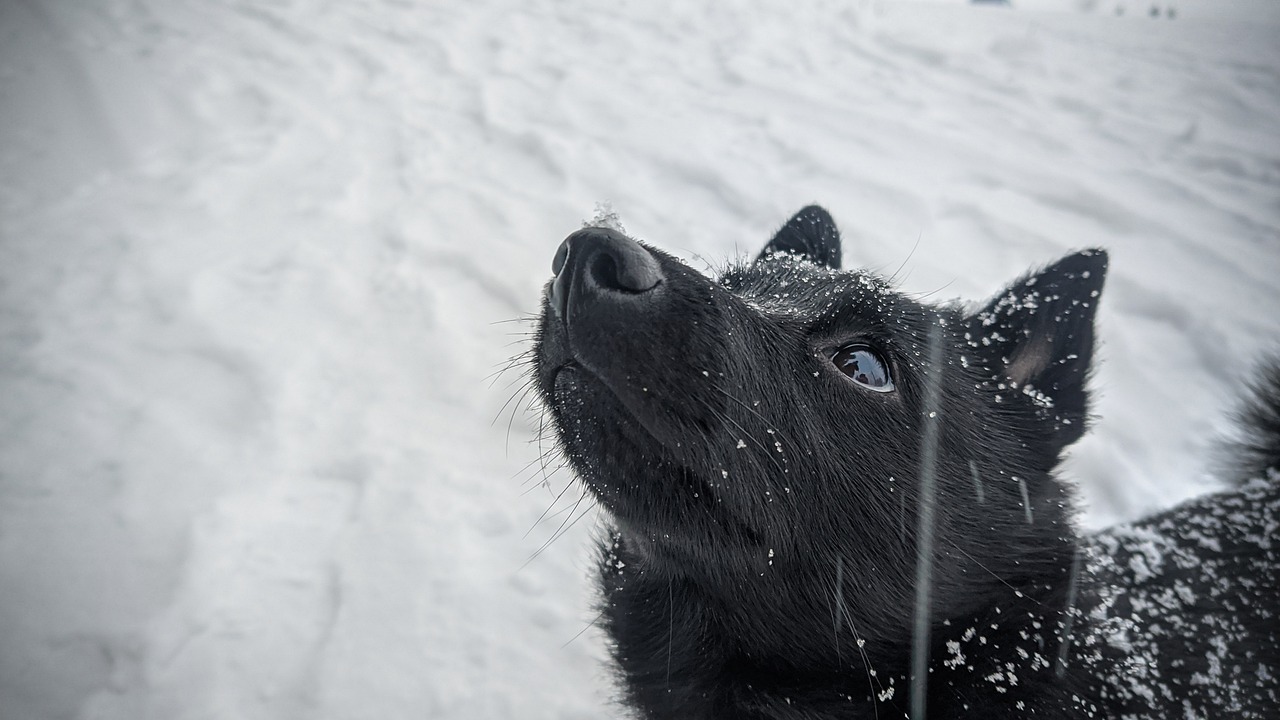
Interactions with Children
When it comes to interacting with children, Schipperkes are a breed that truly shines. Their playful nature and boundless energy make them fantastic companions for kids, often turning everyday moments into delightful adventures. Imagine a small, fluffy tornado racing around the backyard, chasing after a ball with the enthusiasm of a child on a sugar rush—that's a Schipperke for you! They have an innate ability to bond with younger family members, providing not just companionship but also a sense of protection.
However, like any relationship, the interaction between Schipperkes and children requires supervision and guidance. While these dogs are generally good-natured, their spirited personality can sometimes lead to overexcitement, which could overwhelm smaller kids. It's essential to teach children how to interact with their furry friends gently and respectfully. For instance, showing kids how to approach a Schipperke calmly and allowing the dog to initiate contact can foster a more positive experience for both parties.
Moreover, Schipperkes thrive on playtime. They love engaging in games like fetch or tug-of-war, which can help strengthen the bond between the dog and children. However, it's crucial to establish some ground rules. Here are a few tips for ensuring safe and enjoyable interactions:
- Supervise Playtime: Always keep an eye on interactions to prevent any accidental roughhousing.
- Teach Gentle Handling: Encourage children to pet and handle the dog softly to avoid startling them.
- Provide Breaks: Allow the Schipperke to have quiet time away from energetic play to recharge.
Additionally, involving children in the dog's care routines, such as feeding and grooming, can promote responsibility and deepen their connection. This not only teaches kids about empathy and respect for animals but also helps the Schipperke feel more integrated into family life. In essence, the dynamic between Schipperkes and children is one of mutual joy and discovery, where both can learn and grow together.
1. Are Schipperkes good with toddlers?
Yes, Schipperkes can be great with toddlers when properly introduced and supervised. Their playful nature can complement a child's energy, but always ensure that interactions are monitored.
2. How do I introduce a Schipperke to my child?
Start by allowing the dog to approach your child in a calm environment. Teach your child to extend a hand gently and let the dog sniff before petting.
3. Can Schipperkes tolerate rough play?
While Schipperkes are playful, they may not tolerate overly rough play. It's essential to teach children to play gently to prevent any stress or anxiety for the dog.
4. What activities can kids do with Schipperkes?
Kids can engage in various activities with Schipperkes, such as playing fetch, going for walks, or even teaching them simple tricks. These activities foster a strong bond between them.
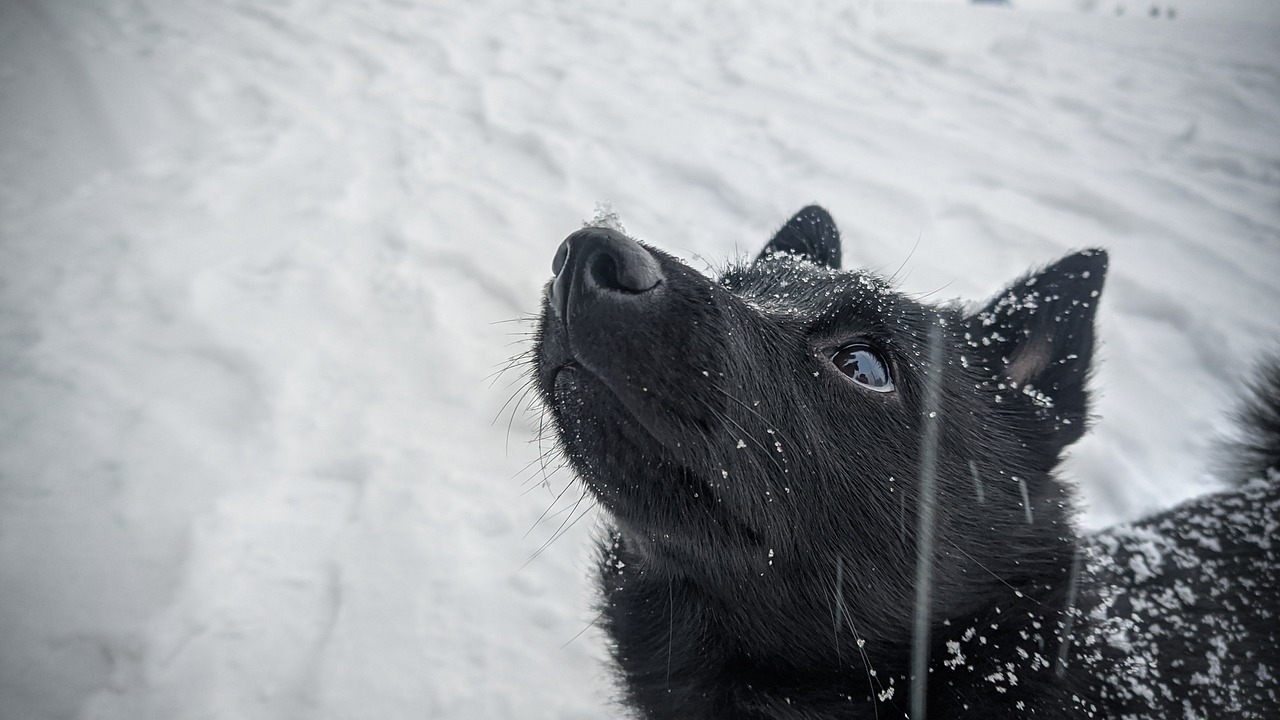
Living with Other Pets
When it comes to , Schipperkes can be delightful companions, provided they are introduced properly. These energetic little dogs have a friendly disposition that often makes them a joy to have around other animals. However, it's essential to remember that every dog is an individual, and their interactions can vary based on their personality and past experiences.
To ensure a harmonious household, early socialization is key. Exposing your Schipperke to various pets and environments from a young age helps them develop a friendly demeanor. This exposure can lead to a more adaptable and sociable pet who feels comfortable around different animals. For instance, if you have a cat or another dog, introducing them gradually can help ease any tension. Start by allowing them to sniff each other through a door or gate, and then proceed to short, supervised meetings. This gradual approach can significantly reduce anxiety and promote positive interactions.
Moreover, Schipperkes tend to have a playful nature, which can lead to fun and engaging playtime with other pets. They often enjoy chasing and being chased, which can be a great way for them to bond. However, it's crucial to monitor their play sessions, especially with smaller pets, to ensure that the play remains safe and friendly. Remember, Schipperkes have a strong prey drive, which means they might be tempted to chase smaller animals. Therefore, supervision is not just a good idea; it’s essential.
Here’s a quick overview of tips for ensuring a friendly coexistence:
- Early Introduction: Start socializing your Schipperke with other pets as early as possible.
- Supervised Play: Always supervise interactions, especially in the beginning.
- Positive Reinforcement: Reward good behavior with treats and praise to encourage friendly interactions.
- Space and Resources: Ensure each pet has its own space and resources to minimize competition and stress.
In summary, Schipperkes can live harmoniously with other pets, but it requires a bit of effort and attention. By fostering a friendly environment and facilitating positive interactions, you can help your Schipperke thrive alongside your other furry friends, creating a lively and loving household.
Q: Can Schipperkes get along with cats?
A: Yes, Schipperkes can get along with cats if introduced properly and socialized from a young age. However, supervision is essential to ensure safe interactions.
Q: How do I introduce a Schipperke to a new pet?
A: Introduce them gradually, starting with sniffing through a barrier, then moving to short, supervised meetings. Always monitor their interactions until you are confident they can play safely together.
Q: What should I do if my Schipperke shows aggression towards another pet?
A: If your Schipperke displays aggression, separate them immediately and consult with a professional trainer or behaviorist to address the issue.
Q: Do Schipperkes require special training to get along with other pets?
A: While they don’t require special training, basic obedience training and socialization are crucial for teaching them how to interact positively with other pets.
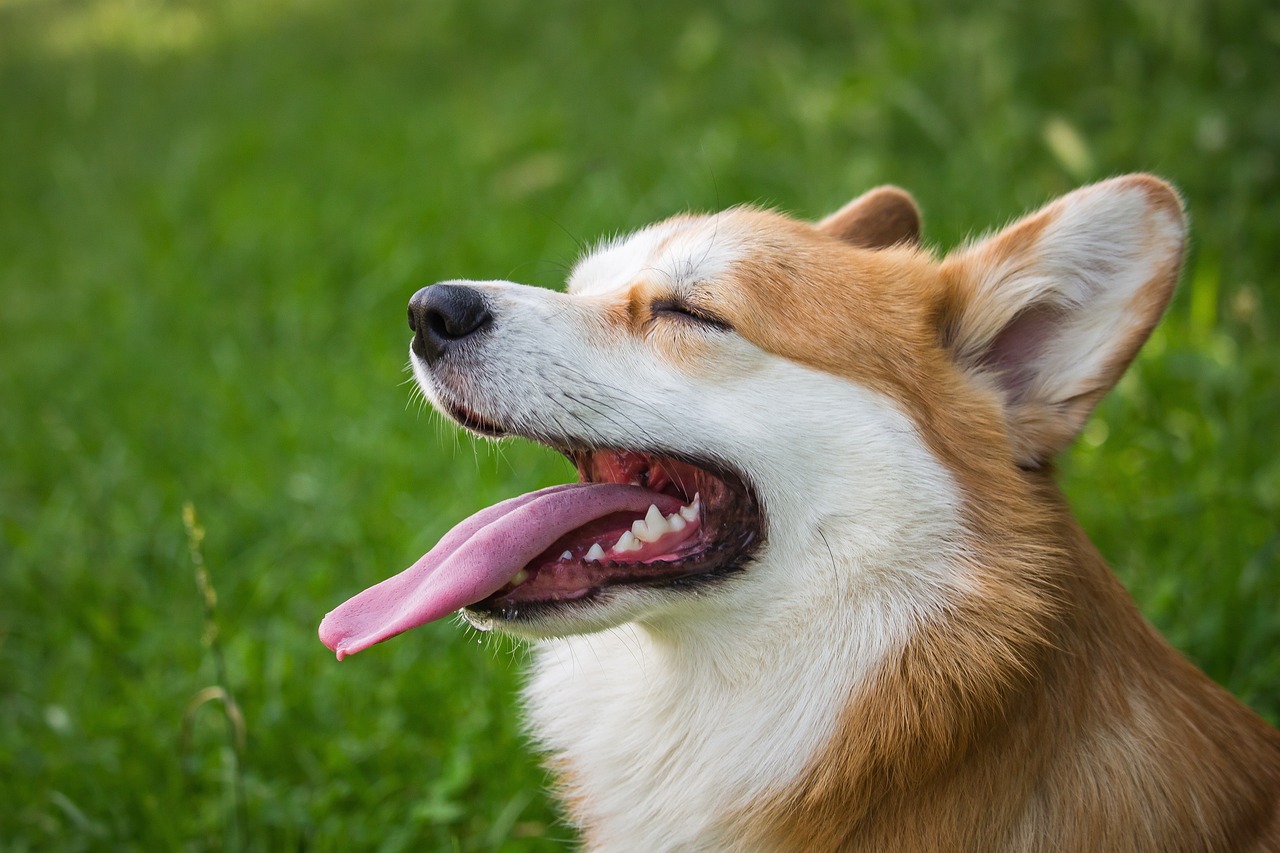
Exercise Requirements
When it comes to the Schipperke, exercise is not just a routine; it's a vital part of their daily life that contributes significantly to their overall well-being. These lively little dogs are known for their boundless energy and playful nature, which means they require regular physical activity to stay happy and healthy. Think of it this way: just like a child needs playtime to thrive, a Schipperke needs its share of exercise to avoid becoming bored or restless. Without sufficient activity, they can develop behavioral issues, such as excessive barking or chewing.
So, how much exercise does a Schipperke really need? Generally, a daily regimen of at least 30 to 60 minutes of vigorous activity is recommended. This can include a mix of walks, play sessions, and even some time off-leash in a secure area. Engaging them in activities like fetch or agility training can not only satisfy their physical needs but also stimulate their keen minds. Remember, a tired Schipperke is a happy Schipperke!
Here’s a quick breakdown of some fun ways to keep your Schipperke active:
- Daily Walks: Aim for at least one or two walks each day. These outings provide not only exercise but also mental stimulation through the sights and sounds of the outside world.
- Interactive Play: Games like tug-of-war or fetch can be great for burning off energy and strengthening your bond.
- Agility Training: Consider setting up a mini agility course in your backyard. Schipperkes are intelligent and love to learn new tricks!
Additionally, it's important to note that the exercise needs of a Schipperke can vary based on their age and health. Puppies may have bursts of energy but tire quickly, while older dogs may need gentler exercises. Always pay attention to your dog's cues and adjust their activity level accordingly. If you're unsure about what’s best for your Schipperke, consulting with a veterinarian can provide personalized guidance.
In summary, ensuring your Schipperke gets enough exercise is crucial not only for their physical health but also for their mental well-being. Regular activity helps maintain their friendly demeanor and keeps them engaged with their family. So lace up those sneakers, grab a leash, and prepare for some fun-filled adventures with your furry friend!
1. How much exercise does a Schipperke need daily?
Most Schipperkes require at least 30 to 60 minutes of exercise each day to stay happy and healthy.
2. Can Schipperkes live in apartments?
Yes, Schipperkes can adapt to apartment living, but they still need regular exercise and mental stimulation to thrive.
3. What types of activities do Schipperkes enjoy?
Schipperkes love walking, playing fetch, and engaging in agility training. They thrive on interactive play with their owners.
4. Are Schipperkes good with children during playtime?
Generally, Schipperkes are playful and protective around children, but supervision is recommended to ensure safe interactions.
5. How can I tell if my Schipperke is getting enough exercise?
If your Schipperke is calm and content after exercise, they are likely getting enough. Signs of boredom or restlessness may indicate they need more activity.
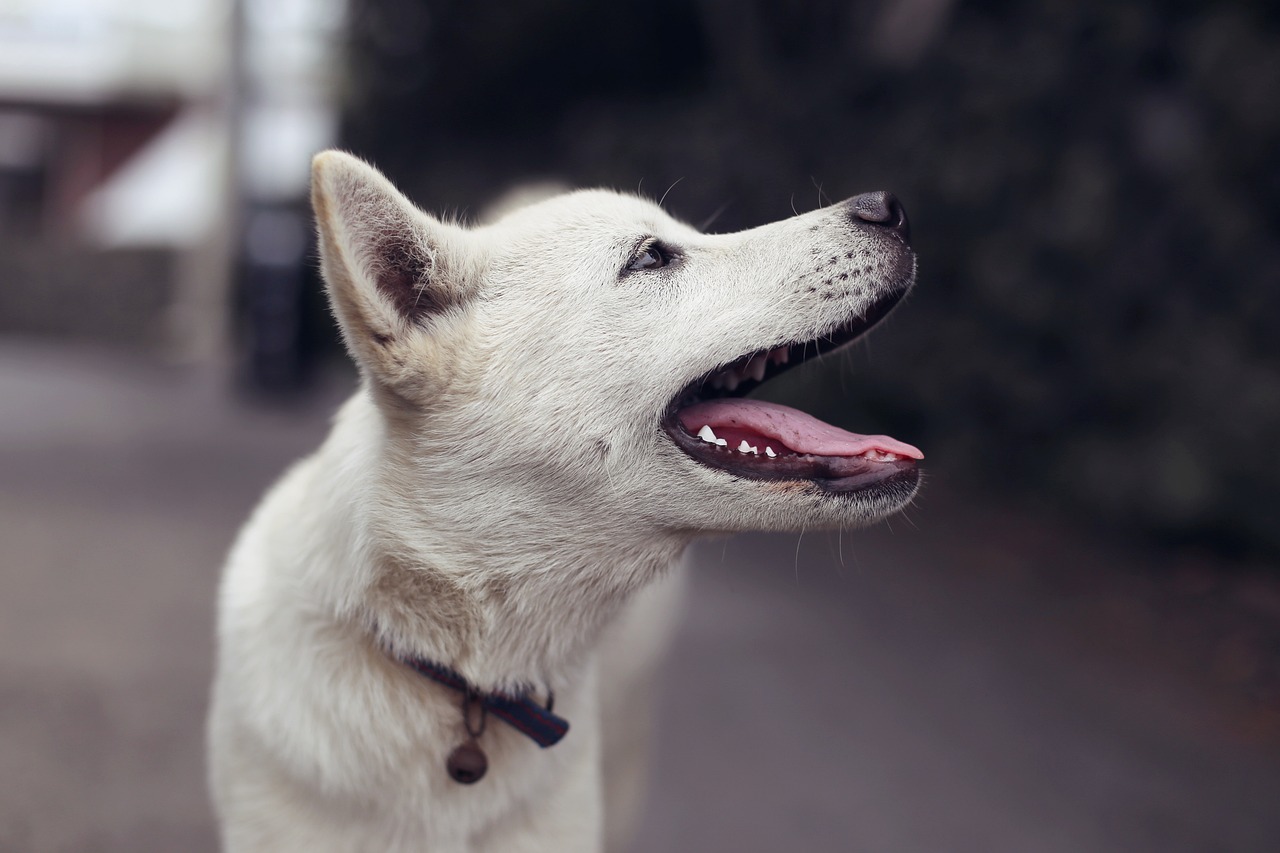
Health Considerations
When it comes to the health of your Schipperke, being proactive is key. Just like humans, dogs can face a variety of health challenges throughout their lives, and Schipperkes are no exception. Understanding the common health issues that can affect this breed is crucial for any owner looking to ensure their furry friend remains happy and healthy. Regular vet check-ups, a balanced diet, and proper exercise are all essential components of maintaining your Schipperke's well-being.
One of the most common health issues that Schipperkes may face is hip dysplasia. This genetic condition affects the hip joint and can lead to pain and mobility issues as the dog ages. It's important to keep an eye on your Schipperke's activity levels and consult your veterinarian if you notice any signs of discomfort. Additionally, maintaining a healthy weight can help mitigate the risk of hip dysplasia and other orthopedic problems.
Another concern is patellar luxation, which occurs when the kneecap dislocates from its normal position. This condition can be particularly prevalent in smaller breeds, including the Schipperke. Symptoms may include limping or difficulty in walking, and if left untreated, it can lead to chronic pain. Regular check-ups will help catch these issues early, allowing for timely intervention.
Moreover, Schipperkes can be prone to eye problems, such as cataracts and progressive retinal atrophy (PRA). These conditions can significantly impact their vision and overall quality of life. Keeping an eye on your dog's vision and seeking veterinary advice if you notice any changes can make a world of difference. A healthy Schipperke is one that can see clearly and enjoy life to the fullest!
To ensure your Schipperke remains in peak condition, consider the following health tips:
- Regular Vet Visits: Schedule annual check-ups to monitor their health and catch any potential issues early.
- Balanced Diet: Feed your Schipperke a high-quality diet tailored to their specific needs, keeping an eye on portion control to prevent obesity.
- Regular Exercise: Engage in daily walks and playtime to keep their weight in check and maintain their physical health.
- Dental Care: Don’t forget about their teeth! Regular brushing and dental check-ups can prevent tooth decay and gum disease.
By staying informed and involved in your Schipperke's health, you can help them live a long, vibrant life filled with joy and companionship. Remember, a happy dog is a healthy dog, and your efforts will surely pay off in the form of a friendly and energetic companion!
Q: What are the common health issues in Schipperkes?
A: Schipperkes can face health issues such as hip dysplasia, patellar luxation, and eye problems like cataracts and progressive retinal atrophy.
Q: How often should I take my Schipperke to the vet?
A: It's recommended to schedule annual vet visits for routine check-ups and vaccinations, but consult your vet for specific advice based on your dog's health needs.
Q: What kind of diet is best for a Schipperke?
A: A balanced diet that is high in quality and tailored to their age, weight, and activity level is ideal. Always consult your vet for specific dietary recommendations.
Q: How much exercise does a Schipperke need?
A: Schipperkes are energetic dogs and typically require at least 30 to 60 minutes of exercise daily, including walks and playtime.

Choosing the Right Schipperke
When it comes to welcoming a Schipperke into your home, making the right choice is paramount. These energetic little dogs are not just pets; they become integral members of your family. So, how do you ensure that you’re picking the perfect furry companion? First and foremost, it’s essential to consider the source from which you’re acquiring your Schipperke. Opting for a reputable breeder or a rescue organization is crucial. A responsible breeder will prioritize the health and temperament of their puppies, ensuring that they are well-adjusted and friendly.
Additionally, take the time to assess the temperament of the individual dog. Each Schipperke has its unique personality, and while they generally exhibit friendly traits, some may be more outgoing than others. Spend time interacting with the dog before making a decision. Observe how they respond to you and their surroundings. Are they curious and playful, or do they seem shy and reserved? This interaction can provide valuable insights into their character.
Furthermore, consider the socialization history of the Schipperke. Puppies that have been exposed to various environments, people, and other animals tend to adapt better to new situations. Ask the breeder or rescue organization about the socialization efforts made with the puppies. Early exposure fosters a more confident and friendly demeanor, reducing the likelihood of anxiety in different settings.
It’s also wise to inquire about the health background of the puppy’s parents. Responsible breeders conduct health screenings for common genetic issues associated with the breed. This proactive approach not only helps ensure the puppy’s health but also contributes to their overall temperament. A healthy dog is more likely to exhibit a friendly and playful nature, so don’t hesitate to ask for health clearances.
Lastly, consider your own lifestyle and how a Schipperke will fit into it. These dogs are known for their high energy levels and need for regular exercise. If you lead an active lifestyle, a Schipperke could be the perfect match. However, if you’re often away from home or unable to dedicate time for daily walks and play, it might be worth reconsidering. Remember, a happy Schipperke is a well-exercised Schipperke!
In summary, choosing the right Schipperke involves careful consideration of the source, temperament, socialization history, health background, and compatibility with your lifestyle. By taking these factors into account, you can ensure that you bring home a friendly, loyal companion who will bring joy and energy into your life.
- How much exercise does a Schipperke need? Schipperkes require at least 30 to 60 minutes of exercise each day to stay healthy and happy.
- Are Schipperkes good with children? Yes, Schipperkes are generally good with children and can be playful and protective, but supervision is always recommended.
- Do Schipperkes shed a lot? Schipperkes have a double coat and do shed, particularly during seasonal changes. Regular grooming helps manage shedding.
- Can Schipperkes live with other pets? Yes, with proper introductions and early socialization, Schipperkes can coexist harmoniously with other pets.
Frequently Asked Questions
- What is the temperament of a Schipperke?
Schipperkes are known for their lively and curious personalities. They are friendly, loyal, and affectionate, making them great family pets. Their playful nature often leads them to form strong bonds with their owners, showcasing a unique blend of friendliness and protectiveness.
- How important is socialization for Schipperkes?
Socialization is crucial for Schipperkes to thrive. Early exposure to different environments, people, and other animals helps them develop a friendly demeanor and reduces anxiety in new situations. Proper socialization ensures they grow into well-adjusted adults.
- Are Schipperkes good with children?
Yes, Schipperkes are generally good with children. Their playful and protective nature makes them excellent companions for kids. However, supervision is essential to ensure safe interactions, as their energy levels can sometimes lead to rough play.
- What training techniques work best for Schipperkes?
Training a Schipperke requires patience and consistency. Positive reinforcement methods are the most effective, as these dogs respond well to encouragement. This approach fosters a friendly and cooperative relationship between the dog and its owner.
- How much exercise do Schipperkes need?
Regular exercise is vital for Schipperkes to maintain their health and happiness. Daily walks and playtime not only satisfy their physical needs but also contribute to their friendly demeanor. Engaging them in various activities helps keep them mentally stimulated as well.
- Can Schipperkes live with other pets?
Yes, Schipperkes can coexist harmoniously with other pets when properly introduced. Their friendly nature often leads to playful interactions with other animals. Early socialization is key in fostering these relationships and ensuring a peaceful home environment.
- What are common health considerations for Schipperkes?
Understanding common health issues in Schipperkes, such as hip dysplasia and certain eye conditions, is essential for any owner. Regular vet check-ups and a healthy lifestyle can help ensure your Schipperke remains friendly and active throughout its life.
- How do I choose the right Schipperke?
Selecting a Schipperke from a reputable breeder or rescue organization is crucial. Assessing the dog's temperament and socialization history will help ensure a successful match for your family. Look for a well-adjusted pet that fits your lifestyle and needs.










